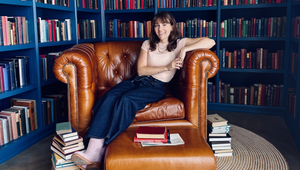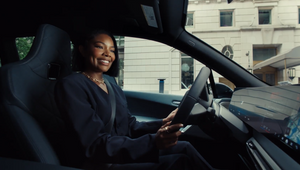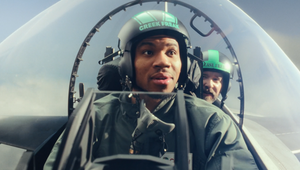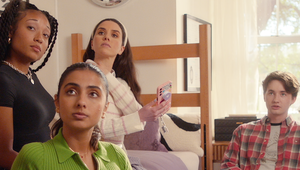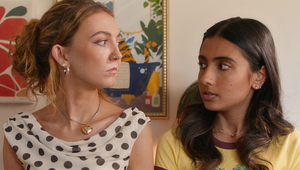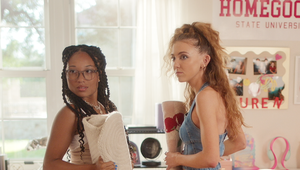
The Directors: Edson Oda
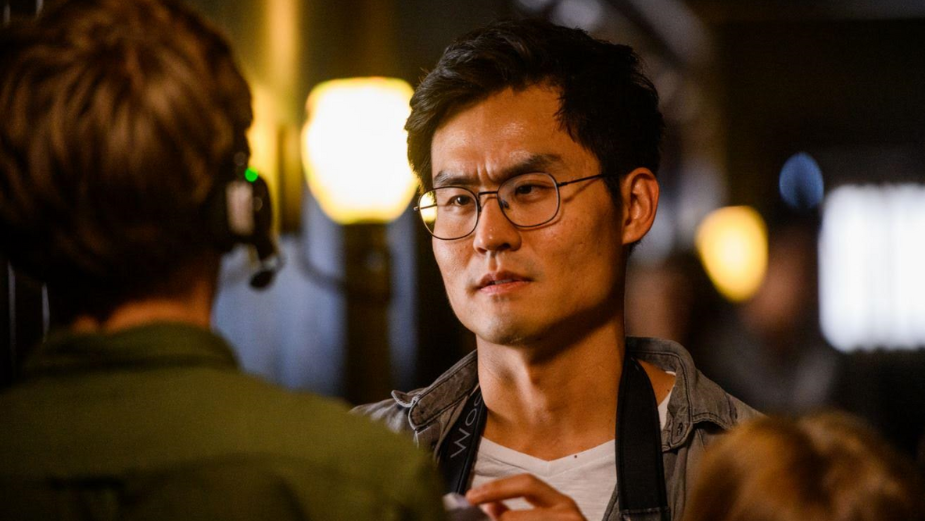
Plunge into the creative hinterlands of the profoundly unconventional with this trailblazer in experimental abstraction, Japanese Brazilian storyteller, and internationally renowned writer and director.
Orchestrating the paper fantasia of his comic book photo dramas or architecting the ornate wonderlands of his imaginative sci fi dreamscapes, Edson Oda’s revolutionary visual storytelling defies categorization, exploring what it is to be human.
Born from the meeting of visual artforms, Edson’s diverse, innovative portfolio has received extensive international acclaim.
Executive produced by Spike Jonze, his Sundance premiering, Sony Pictures distributed supernatural drama Nine Days starred Winston Duke, Zazie Beetz, Bill Skarsgård, and Benedict Wong.
When he isn’t busy building different realities that make us question our own, you may catch Edson salsa dancing on Santa Monica’s Third Street Promenade.
Name: Edson Oda
Location: Los Angeles
Repped by: Eleanor
Awards: The Waldo Salt Screenwriting Award, Latin Grammy nominee, BAFTA Breakthrough
The Directors: Edson Oda
LBB> Is there a particular genre or subject matter or style that you're most drawn to?
Edson> When I'm making my own thing, I usually do something high concept. In some ways, there's a different kind of word building.
I think the most important thing is the characters and what they go through and their emotions. For the audience, it's how they connect to those characters. I do like to see how those people and those emotions are going to behave in the new world that I’m building. I like to create a new environment where I can explore the human condition and see like, oh, how are those people going to do here?
I love movies that are just about people. My favourite movies are just about people. I like movies like Lost in Translation. Movies like ‘Manchester by the Sea’. But there are already people who make those movies. I try to find what’s unique about my work, and I think it's just finding those new concepts, new realities, new words, and then see how those very real human beings would behave in this new reality.
LBB> What is one misconception about you or your work that you often encounter?
Edson> Sometimes people are like, oh you like sci fi. Your thing is more about this worldbuilding, and it's very surreal. And, I get it. But I’m more interested in the people. I like worldbuilding where you create a very different reality from what we know. Then, we see how those characters interact with those conditions, and it doesn’t necessarily need to be sci-fi. But I think people usually associate worldbuilding with sci-fi. Even Nine Days, there’s nothing about science fiction, but some people call it science fiction, because it's a different world.
LBB> What's your relationship with new technology and when do you incorporate future facing tech into your work?
Edson> Essentially never. Not that I’m against it. Maybe I’m not familiar or interested enough? I’ve never used Chat GPT. I never use Mid Journey. I guess I’m a little resistant. I don’t like other things making choices that I don’t want them to make. I think it kind of relates to the way I like to film. I’m not a very CG oriented guy. I don’t like to film and say like, oh now we’re going to send it to the post production and they’re going to do whatever. I feel like there’s an amount of control that I really like to have when filming. There’s something about a movie set that should feel magical in some ways. You know, you’re making the magic there. And for sure you can put some sprinkles and cherries on top of it in post. But a lot of it is doing it ourselves and having intentionality in what we create rather than rely so much on technology.
LBB> So, your work is now presented in so many different formats. To what extent do you keep each in mind as you're filming? And then to what extent is that even possible?
Edson> When I’m filming anything I’m just thinking about what’s happening in front of me. And the format. Like a three by four or a sixteen by nine. But I never think in terms of dimensions, like how big the screen is going to be. It’s more about what’s happening in front of me, and what’s the crop. And, if people tell me, oh this needs to be a TikTok video, then I’ll think oh it's going to be this crop. But in terms of size, I don’t think that much about it.
LBB> How can the production world further uplift a diverse pool of tech talent?
Edson> In terms of considering talent, having all types of people coming from everywhere is important. With commercials, we get a lot of submissions. You need to get submissions from everywhere. It starts from production, but also directors – we need to consider people of colour and people who are not just from the United States. You should start with a wide diversity. From there you see who is right, and you try to create a team that feels right for the project. The background of the crew says something about the project. To get to the point where you’re choosing the right person, you need to already have had a lot of different kinds of people to choose from in the beginning.
LBB> And what are your thoughts on mentoring and apprenticeships on set?
Edson> I love doing that. I do love mentoring and helping people. I do it, you know, as much as they can. And sometimes I'm busy, and I feel bad for not being able to help everyone. Sometimes you just can't help everyone, and it takes a while to find time. I'm still in touch with Sundance. And every time they ask me to possibly mentor someone, I try to talk to them and mentor and teach something that I learned in the process. I also have some friends who now teach at USC. So through USC I also had some mentees.
Teaching is something that I really want to do at some point. I still think I need to do more and work a little bit more on this field so I can teach more to students. But that's my goal in the future.
LBB> What’s the craziest problem you’ve come across in the course of a production? How did you solve it?
Edson> The most important part of the movie was a monologue. Winston Duke’s monologue. We had a limited amount of time in the desert–two days or something. We’d shot the first part of what happens in the desert the prior day, everything that precedes the monologue. But when the editors saw the footage they said, this lighting is different, so you have to do everything again because this is not going to match. We’d spent a lot of time shooting those scenes, and we had to do everything again.
It was tough. The actors, you know, are so nice and eager to make it work. We were all just running around the desert with the camera and the tripod. It felt like a more hardcore version of film school. It was insane.
And at some point we did it, we reshot it. The sun was just about to set. So, we had like two hours to shoot the monologue. And then that was the end of the day. At the time it was like, did we get it? I don’t know.
A couple months later, we actually watched the original footage, the scenes we reshot, and we were like, oh no the footage would match. So, we had two versions.
That was kind of crazy. As you asked, that was the thing that came to my mind.
LBB> What do you see as the most important working relationship for a director to have in the filmmaking process?
Edson> It’s kind of everyone. As a director, you're not going to talk to everyone. You're definitely going to be talking more with the heads of each department. But at the same time, it’s important to treat everyone who crosses your way and talks to you the same way in terms of attention and kindness. It’s hard because sometimes you have thousands of problems to solve. But I think just, try to treat everyone decently. That is very important.
Also, I think you have to give double attention to the actors. They are giving their faces, you know. It’s such a vulnerable position to be in.
Sundance at some point put me in this workshop that had an amazing acting coach. She told me, the first thing you should do as you call cut is look at your actors. See how they feel. It’s easy for us to just pay more attention to the technology. Oh, how was this dolly? But right after you call cut is when the actor just gave you their heart. And if you don’t even acknowledge it, it’s so devastating.
You need to address that moment of love or pain. Even if you check in. Say, how do you feel? Acknowledge their existence.
I usually carry a monitor with me. I don’t like screens, villages, because you are distant from your actors. So I just stay very close to the camera and very close to the actors. If I need to check the frame or whatever I check the monitor I carry with me. But I’m usually just watching them live. I’m seeing what they’re delivering at the exact time that it’s happening, because that thing is not going to happen again.
And the actors, they feel it somehow. They feel that you are watching them, that you are paying attention. In some sort of way, their performance gets better, because they are not acting for the camera they are acting for you. For me that was a game changer. You watch a movie for the emotion, so that connection between actor and director is going to create that emotion. Of course the cinematographer creates some emotion, but the look in the eye, the smile, is gonna come from the actor.
Especially because I usually write my own stuff, I like to see how they are saying those words, how they’re touching the feeling of those words. I feel that I need to be there to witness that. It’s kind of the best feeling as a director to witness that they’re saying those lines and bringing those to life.
I feel so thankful for them, because they’re saying give me those words, I will give birth to them. It’s painful sometimes to give birth to those words. I try to show as much appreciation as I can.
LBB> What elements of a script sets one apart from the other? What sort of scripts excite you most?
Edson> Characters for sure. The story usually comes from characters. Can I feel something about them? Can I feel bad for them? Can I relate with them? Can I just cheer for them? Cry for them? Care?
As you start thinking of the characters as you think of a friend or someone from the family, you realise you like them. Of course, when you think about the plot and the story, you ask if it’s clever or not. But usually, I think it’s clever when the plot relates to the character. You go back to an interesting plot twist, but it has to do with the emotion of the character.
LBB> Do you have a specific approach to creating a treatment?
Edson> I tried to just capture the purpose for each scene to exist. How I would translate the purpose visually, in terms of frames. I tried to create a visual grammar, a visual language, for each scene according to its purpose.
Before that, I tried to create something emotionally, with a wide scope. What's the main thing? From the main thing, I tried to create a motif of the movie or whatever. Something that represents the movie. For example, for Nine Days it was darkness and light. There's two sides of life. Will’s house is darker and things are more in control. Lights are controlled. Life in the real world is so much brighter, and everything is not in control. Things happen. At some point you just go to the desert and just burst out of the house, whenever you’re just following him. The monologue was just what happened. I told my cinematographer, just follow him. Follow whatever he’s doing.
LBB> What are some differences you're noticing working on the second feature versus the first one?
Edson> I’m writing my second film right now. So, I hope after the strike I can start showing it to people and there's some interest, and I will see how it goes. In terms of writing, there's a lot of stuff that helps. Prior knowledge. But at the same time, It's difficult. Even more difficult. It doesn’t get any easier. I guess I’m a better writer, but it’s hard. Each movie is a different movie.
I’m training for a marathon. What people say is, every marathon is as difficult as the last one or even more. I think movies might be like that. No matter how much you train or do or prepare, it’s always difficult.









